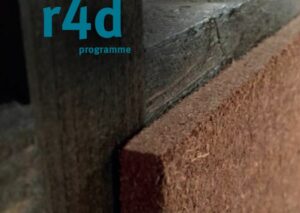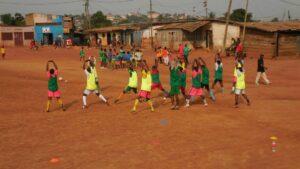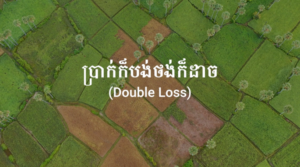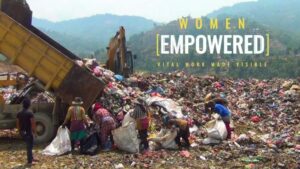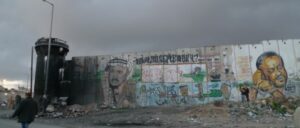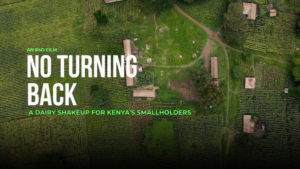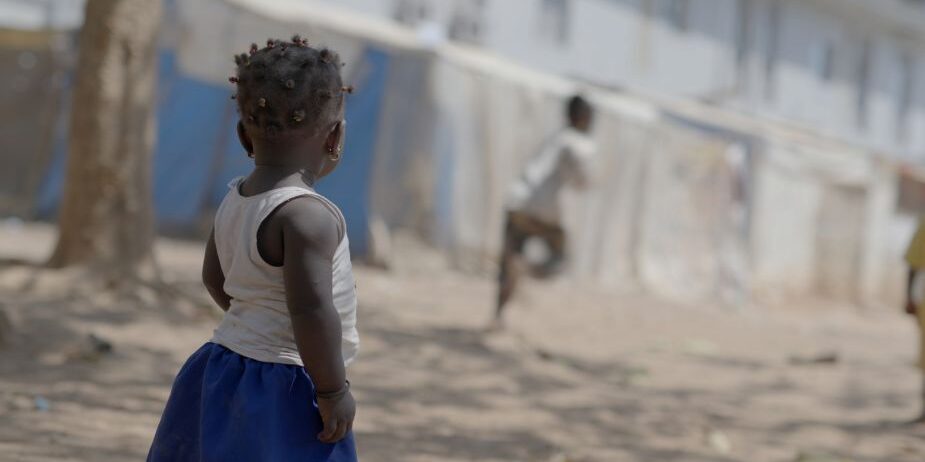
Converging views of a world in search of justice and peace
The latest and most recent changes resulting from the multiple demands and anger of peoples across the planet have the unfortunate habit of wreaking havoc on the old world order. And to leave a scent of burnt earth in it. The #MeToo movement in 2007, the financial crisis in the real estate sector at the end of 2008 in the United States (USA), the«Arab Spring»starting in December 2010, the«yellow vests»movement in France in November 2018, the Greta Thunberg advent from 2018 for the climate protection and the latest one, the coronavirus crisis, all testify to the absolute necessity to rethink our political orientations in better directions. The consequences include conflicts, demands for better living conditions and the questioning of national and regional governance systems without sparing international institutions. Each of these upheavals gives rise to the craziest speculations and the most prophetic assumptions. In all this great turbulence and instability, research projects and empirical studies are carried out to understand how to be better referenced to new claims, social anger, humanitarian crisis or each new conflict situation…
Very early in the years 1950 to 1956, a vigorous counteroffensive was led by A. Lewis in his book: «The theory of economic growth» (published in 1955) by strong criticism of the forms taken by international assistance, the character of the solutions proposed to the problems of underdevelopment and their pure simplification, and of the general problems of the promotion of economically backlog peoples. And today these many interpellations are fortunately being asked in issues relating to world development.Thus since 2012, under the impetus of the international community’s Agenda 2030 for sustainable development, Switzerland, through its two major funding and development support agencies, the Swiss Agency for Development and Cooperation (SDC) and the Swiss National Science Foundation (SNSF), has initiated a major research programme to support and accompany sustainable development through a new approach based on three main objectives (generate-provide-strengthen) that will make it possible to significantly improve the rate of impact of development support, poverty reduction, protection of the planet and the well-being of all. Financing not only more than fifty international partnership projects, the r4d programme also offers an exploratory space for synthesis projects allowing an exchange of knowledge and experience to better understand the «global challenges» of sustainable development. Emerging from this approach, the research documentary in question is essentially devoted to two of these universal themes: inequalities and conflicts.
«Inequality and Conflict – Beyond us and them» is a cinematographic-type scientific research work that pursues a participatory interaction approach of actors from all sides (researchers, local protagonists, scientific filmmakers from various backgrounds, civil activists, local leaders, experts and policy makers). They have lived through situations of injustice and conflict and deliver touching testimonies through a remarkable narrative. The making of the film lasted eighteen months from April 2018 to November 2019, in five countries (Guatemala, Nigeria, Sri Lanka, Indonesia, and Switzerland) on four continents (Africa, Asia, America, Europe). It was financed in part by the Swiss Agency for Development and Cooperation and Swiss National Science Foundation through its Swiss Programme on Global Issues for Development (r4d programme).
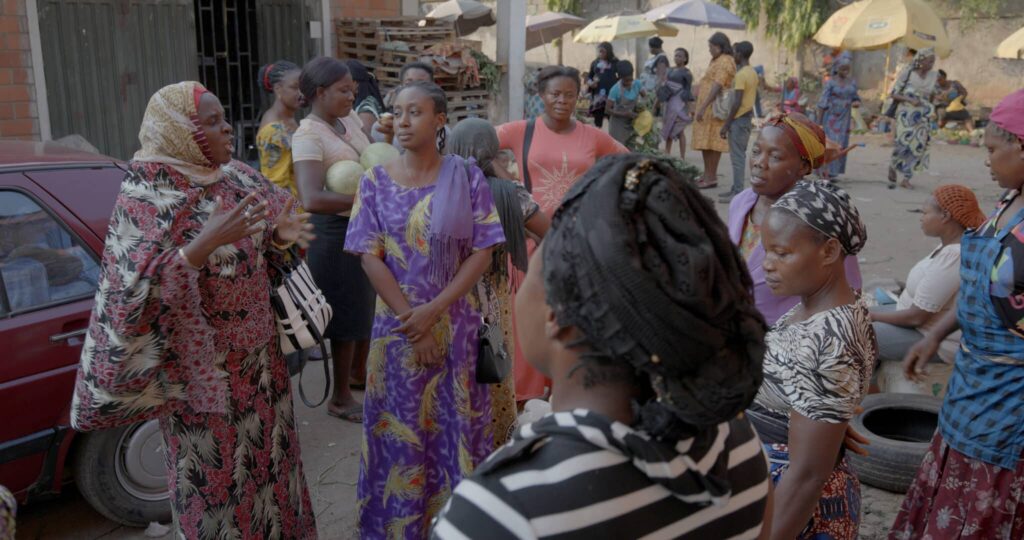
Picture 1: Researcher and activitist, Amina Ahmed, in conversation in a market in Abuja, Nigeria. Film still of «Inequality and Conflict», October 2018.
With a very open, universal character where diverse knowledge and experiences intersect, this documentary is an invitation to thematise the stakes and address the challenges of peace-building and social conflict resolution work in a turbulent world. There is a need to deepen the learning of human values, to exchange, debate and hear what is very often omitted in the work of resolving social conflicts, preventing violence and maintaining peace.The fruit of decisive and committed efforts by a valiant work team, «Inequality and Conflict – Beyond us and them» is the perfect example of a successful collaboration with regard to the diversity of the actors’ origins and continents. In this sense, it is like a «voice» that questions, communicates, raises awareness, and finally invites a real awareness, responsibility, and a genuine commitment by all in the face of the challenges of the culture of peace, non-violence, and a better management of post-crisis stigmatization. The testimonies that we will mention in the following lines are nothing more than tangible evidence that corroborates these themes.
For example, if we take a closer look at certain situations, such as in Nigeria in the Plateau State of Jos, more precisely where a community conflict of a religious nature suddenly erupted in 2001, resulting in one thousand deaths in one week. In her testimony, Amina Ahmed (Peace Activist and Researcher) recounts a painful past of religious origins and unfounded rumours where a community was treated with indifference and segregation because of its religious affiliation (Islam), its ethnic origin.
Researchers Dung John Hywre (Research Consultant), Prof. Dr. Tor Iorapuu (Executive Director YARAC, Dean Faculty Theatre Arts Jos University), Mabela A. Ade (Researcher, Adouna Arise Foundation) provide a slightly more accurate interpretation. This conflict is said to have its origins in the unequal treatment between the indigenous community and the community considered as settlers, where a common ethnicity is clearly apparent, a rivalry for control of resources and living space because of its scarcity, a permanent fear of domination, and finally the quest for social justice. Hywre adds that these situations of injustice and unequal treatment are further justified by an almost total absence of legal texts in the Nigerian constitution and the veiled refusal of local and federal authorities to give them any particular importance.
In Guatemala: Hearing the testimonies of Juana Sales Morales (Tzununjià Indigenous Women Movement) and Rigoberto Juarez (Maya Ancestral Leader), the marginalization, persecution and oppression of Maya communities who only aspired to better living conditions with dignity and respect are among other forms of situations of inequality. Ignored and forgotten, these communities organized themselves into small groups to resist the oppressive power that unfortunately plunged the country into a long civil war from 1960 to 1996. The deployment of the army in November 1981 in the face of this defiance marked the beginning of the massacre of the indigenous communities and the annihilation of about four hundred and forty villages, a million exiles (mostly indigenous men and women). The army committed a genocide of two hundred thousand victims and caused the disappearance of fifty thousand souls, the majority of whom were Mayan.
Zuraida, an Indonesian committed woman (Aceh Free Movement Fighter, Political Women Rights Activist) experienced armed struggle from the age of nine due to her parents’ involvement in the GAM (movement for a free Aceh founded in 1976 by a group of Acehnese intellectuals) or GPK at the time. She testifies in this film of her commitment, of her fight in 1998, in front of the explosion of violence (kidnapping and rape of many women) in Aceh in Indonesia. This violence led to the confrontation of the army against the GAM from 1999 to 2002.
From the point of view of Arifah Rahmawati (Lead Researcher r4d, Gadjan Maga University), 35% of the Ambo combatants were young boys enlisted between the ages of ten and fifteen; all of them motivated by false ideas of defending the honour of a community, a family, a religion or a woman… This conflict resulted in more than ten thousand victims and thousands of people disappeared, tortured or raped. It lasted until the tsunami that hit the country in 2004. It was only after the disaster that peace agreements were signed.
From its first screening on November 4, 2019 in Geneva to date, «Inequality and Conflict – Beyond us and them» has been the subject of numerous requests for screenings by various structures and of numerous requests for wide distribution to other countries in crisis or post-crisis situations. With a transversal and transcultural approach, this documentary film crosses borders, continents, countries and finally reaches social groups to arrive by chance in the country of «men of integrity», Burkina Faso.
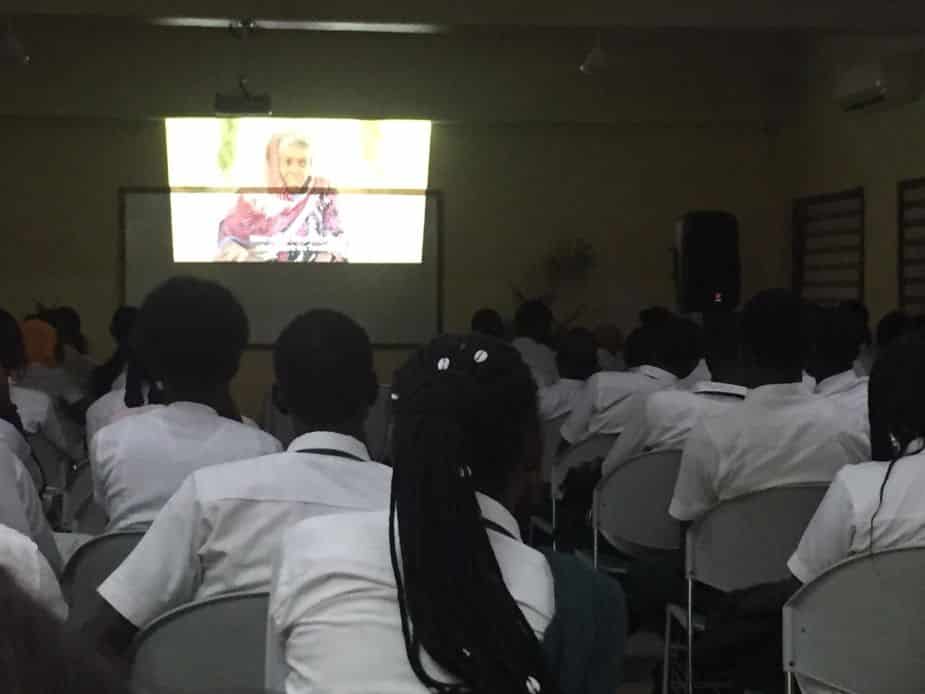
Picture 2: A film screening inOuagadougou, Burkina Faso, March 2020.
Since the expression of “fed up» of the Burkinabe people through their revolution of October 2014, which brought down a power with multiple facets of inequality and injustice, which marked a decisive turning point in the life of this brave people and which served as a good example at the sub-regional and international levels, there has unfortunately been no noticeable progress to date on the «global challenges» of sustainable development.Indeed, once a peaceful country in the heart of the West African region, Burkina Faso is today facing various divisions within its communities leading to situations of generalized anger and the formation of armed and self-defence groups, such as the Koglweogos and Dozos, as well as multiple terrorist attacks. Unfortunately, the gaps are widening between the populations, the perfect social cohesion of yesterday is on the verge of being lost, the institutions are becoming more fragile, and mistrust is taking hold at all levels. All this is leading us inexorably towards a generalized feeling of uncertainty and peace, which is therefore very fragile. We are undoubtedly witnessing early signs of social crisis and conflict where peace, calm and tranquillity are becoming a luxury for the wealthy.
Broadcast in such a context three times in the two largest cities of this country (Bobo-Dioulasso, Nazi Boni University on 27.02.20; Ouagadougou at the Centre National de Presse Norbert Zongo/CNP-NZ on 03.03.20 and at Campus ZAD IAM on 04.03.20), the research documentary «Inequality and Conflict – Beyond us and them» has given rise to many proposals and various recommendations from film enthusiasts, including for example:
- Investing more for zero cases of post-crisis stigma to reduce or even control the eruptive potential.
- Do a deep upstream and downstream work to prevent and resolve any situation of conflict, and/or injustice and/or inequality through increased improvement of governance and better adaptation of governance policies. This would result in better performance and results in the fight against the various forms of inequality.
- Promote and multiply initiatives such as the diffusion and sharing of the film in Burkina Faso by giving itself more time in its organization in order to reach the maximum number of people at all levels. The contribution and pro-active collaboration of political decision-makers, local and international partners to sustainable development (international and sub-regional institutions, NGOs, public-private sector, associative world…) are more than ever desired because unfortunately their absence at these screenings of the documentary film was very deplorable.
- Invite the r4d programme team to a film collaboration in the future in order to better popularize the work in local national languages for its greater and easier accessibility and availability via the web.
- Exhort local actors and international partners, but more specifically the r4d programme to maintain and if possible to continue its collaboration at the national level because everyone is aware of its importance and its impact on the Burkinabe population in general and the more vulnerable and subject to all kinds of exactions in particular.
And what can we say about the different reactions of the moviegoers present at these three screenings?
On average, about one hundred people, including teacher-researchers, students, civil society activists, and journalists-communicators, people from the informal sector and associations, and the curious were present at each screening. This film seduced its audience and its three sessions were a source of expression of very rich emotions and a strong sensitivity.
For everyone, «Inequality and Conflict – Beyond us and them» appears as a voice that challenges, raises awareness and calls for the awakening of the consciences of all components of Burkinabe society to respond to the national emergency of a more peaceful and egalitarian, more united and fairer and strong people in the face of the growing threat of terrorism, social crisis, feelings of marginalization and uncertainty.
All (moviegoers) recognized the value of the work and its universal character because of the themes it deals with and the fact that it has been made under several different climes. They also found that this film conforms and adapts quite naturally to the local context of Burkina Faso and calls for an inclusive consultation and dialogue of all the living forces. This will foster the construction and promotion of the culture of peace, tolerance, equality and non-violence in a country where everyone feels responsible for a common destiny. This common destiny is none other than a strong nation, more just, united, peaceful and egalitarian societies in a more humane and happy world, according to the opinions that emerged from the exchanges and debates, the local press review on the topic and the interviews conducted following the screening of this film.
In view of the interest shown by the moviegoers, the relevance of the requests and proposals, and the strong sensations, we have to agree that in this initiative lies an audacity and willingness of a determined and voluntary team to provide information and share its research results.
Various peoples throughout the world are establishing an ever closer union among themselves, such as the European Union (EU), African Unity (AU), the Economic Community of West African States (ECOWAS), the Union of South American Nations (UNASUR), the Central American Integration System (SICA) and decide to share a peaceful future based on common values such as human dignity, freedom, equality and solidarity based on the principle of democracy and the rule of law. These values, which are indivisible and universal in character, enable each union to place the individual at the heart of its action by creating an area of freedom, security, justice and peace.Touched and excited during a screening of this film at the Swiss National Science Foundation, Kady Boly Rüttimann expressed the need and necessity to show it in her homeland. In her opinion, «Inequality and Conflict – Beyond us and them» would be perfectly contextualized to the national environment of Burkina Faso. This is how the research documentary film travelled to Burkina Faso. Received as a messenger, she skilfully accompanied the organizing teams to success in the various screenings of the film in her beloved country, Burkina Faso. She has shown great courage and self-sacrifice and has benefited from the unconditional support of Fernand Sankara (Msc, Phd, Institute of Rural Development, University Nazi Boni, Burkina Faso), Abdoulaye Diallo (Communicator-Producer, Coordinator of Norbert Zongo National Press Centre and Ciné Droit Libre, Burkina Faso), Amed Moussa Diallo Director of IAM (African Management Institute, Burkina Faso) and finally the close collaboration of the r4d programme’s management team and in this instance of Claudia Zingerli.
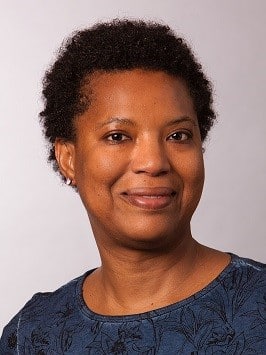
Picture 3: Kady Boly Rüttimann, collaborator at the Swiss National Science Foundation, co-organised the three film screenings in Burkina Faso.
All credit therefore goes to all those people who have invested themselves individually and collectively to make it possible to produce and screen such a masterpiece in a global and Burkinabé environment that is as tumultuous as stormy. Hence, to close this chapter, we take the liberty of making a global interpretation of this work and its journey in the different regions of the world.
«Inequality and Conflict – Beyond Us and Them» clearly appears to be a driving force in shedding light and raising awareness on the multiple facets of inequality (gender, age, ethnicity, religion or social category). Through the testimonies of victims of conflicts, this film invites us to reflect on individual and collective responsibility and commitment when they occur. This requires not only a sacred union by all in the face of these conflicts through common actions, but also a strong work of anticipation in order to restore peace in our world and guarantee its survival. This is summed up so well in the Dalai Lama’s words at the Earth Summit (Rio, 1992) and in the European Parliament (Strasbourg, 2001): «Universal responsibility is absolutely essential for the survival of humanity; it is the best foundation for world peace» and «Promoting a culture of dialogue and non-violence for the future of humanity is a duty from which the international community cannot escape». These words constitute a vibrant appeal to every human being to become aware of universal responsibility and to promote a culture of dialogue and non-violence in order to lay a better foundation for building peace in the world for the well-being of all humanity. This perfectly corroborates the themes of this research documentary film.
Are these not real reasons for everyone to commit themselves, regardless of their origin, race, social class, religious, political or ideological affiliation, to the great happiness of our humanity? This is the departing point for writing a new page of the history of a more viable world of ours – a more human world.
Related Posts
Sources
Facebook, r4d programme:
https://www.facebook.com/r4dprogramme/
Media articles from Burkina Faso:
https://libreinfo.net/projection-film-inegalite-et-conflit-je-crois-que-certains-debats-sont-portes-dans-lignorance-mamounata-tansambedo-etudiante/?fbclid=IwAR1P2IqnM9WAmkFvP3Jm-Vc48zurkrcCJGXHmDdUqBRWOVx-Rsa3Ukt_KNo ; https://www.burkina24.com/2020/03/04/inegalite-et-conflit-un-documentaire-pour-inspirer-le-burkina-dans-la-recherche-de-solutions/?fbclid=IwAR2fEBWjeAQaNJo0XeW2Kc74StwsP6BAVt5YsLuGN0uO5_eWDJR0JA0NiRM
Interviews:
With Kady Boly R., Dr Jean Louis Zerbo (Lecturer-Researcher, Faculty of Sciences and Techniques, Department of Physics, Nazi Boni University) and Absa Diallo (Communicator of the CISC (Collectif contre l’Impunité et la Stigmatisation des Communautés meaning Collective against Impunity and Stigmatization of Communities) and Chair of the FEM (Femme en Marche) Movement (meaning Women on the Move)) and Claudia Zingerli
Special Edition:
(An Angry World) of courrierinternational.com
Author:
Vrè Fernand Dombwa, MA in law and political science, currently based in Basel, Switzerland. He is working as independent consultant for development, research and social business projects in West Africa.
Disclaimer:
This article has been financed by the Swiss Programme for Research on Global Issues for Development (r4d programme). Responsibility for the content rests entirely with the author. The r4d programme does not necessarily share the expressed views and interpretations.
